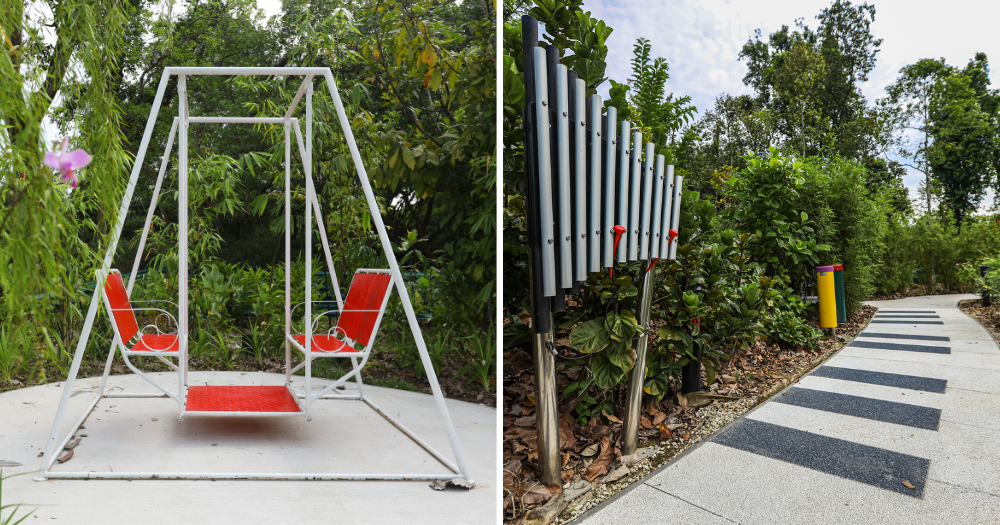Follow us on Telegram for the latest updates: https://t.me/mothershipsg
On Saturday (Oct. 23), the National Parks Board (NParks) opened Singapore's largest therapeutic garden at Jurong Lake Gardens.
The 3,100 square metre therapeutic garden, which is part of efforts to intensify nature and bring forth the benefits of greenery to Singaporeans, contains dedicated sections for children and adults alike.
Its opening was officiated by Second Minister for National Development Indranee Rajah.
Designed to improve visitors' mental well-being
The Therapeutic Garden @ Jurong Lake Gardens was designed using science-based principles, and is planned deliberately to facilitate visitors' interactions with nature and improve their mental well-being.
It includes design elements and user-friendly features to support the needs of children and seniors alike, including children with mild autism and ADHD and seniors with dementia.
NParks conducts research to investigate and quantify the health and well-being benefits of exposure to greenery, including that of therapeutic horticulture.
A study by NParks in 2016, done in collaboration with medical researchers from the National University Health System's Mind Science Centre, found that a 15-session therapeutic horticulture programme improved the general immune health of participants, who were healthy seniors.
This suggested that the intervention could potentially boost immunity and moderate geriatric conditions, including inflammatory diseases, dementia, and depression.
The Therapeutic Garden @ Jurong Lake Gardens is the seventh therapeutic garden in NParks' growing network of therapeutic gardens across the island. By 2030, NParks plans to establish 30 therapeutic gardens across Singapore, as they work toward transforming Singapore into a "City in Nature".
Two more therapeutic gardens will open at Pasir Ris Park and Bedok Reservoir Park later in 2021.
Children's Discovery Area
The Jurong Lake Gardens therapeutic garden is the NParks' first to have a section dedicated to children with special needs.
The Children's Discovery Area has a clear layout with four thematic zones to engage the senses: Fragrance Zone, Touch Zone, Sound Zone, and Plant Zoo.
There are also several play elements, including musical play equipment and a double set of swings.
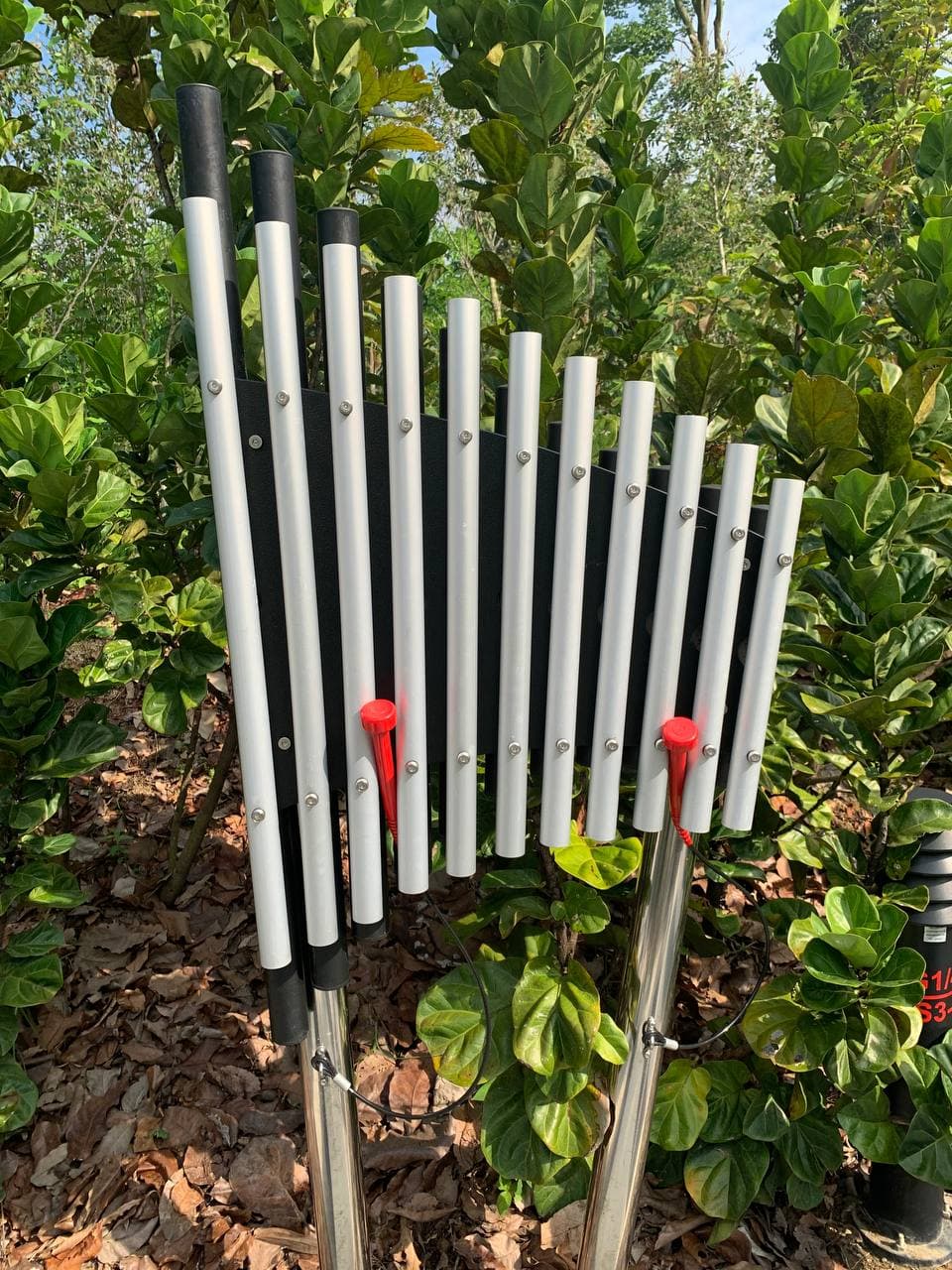 Photo by Lean Jinghui.
Photo by Lean Jinghui.
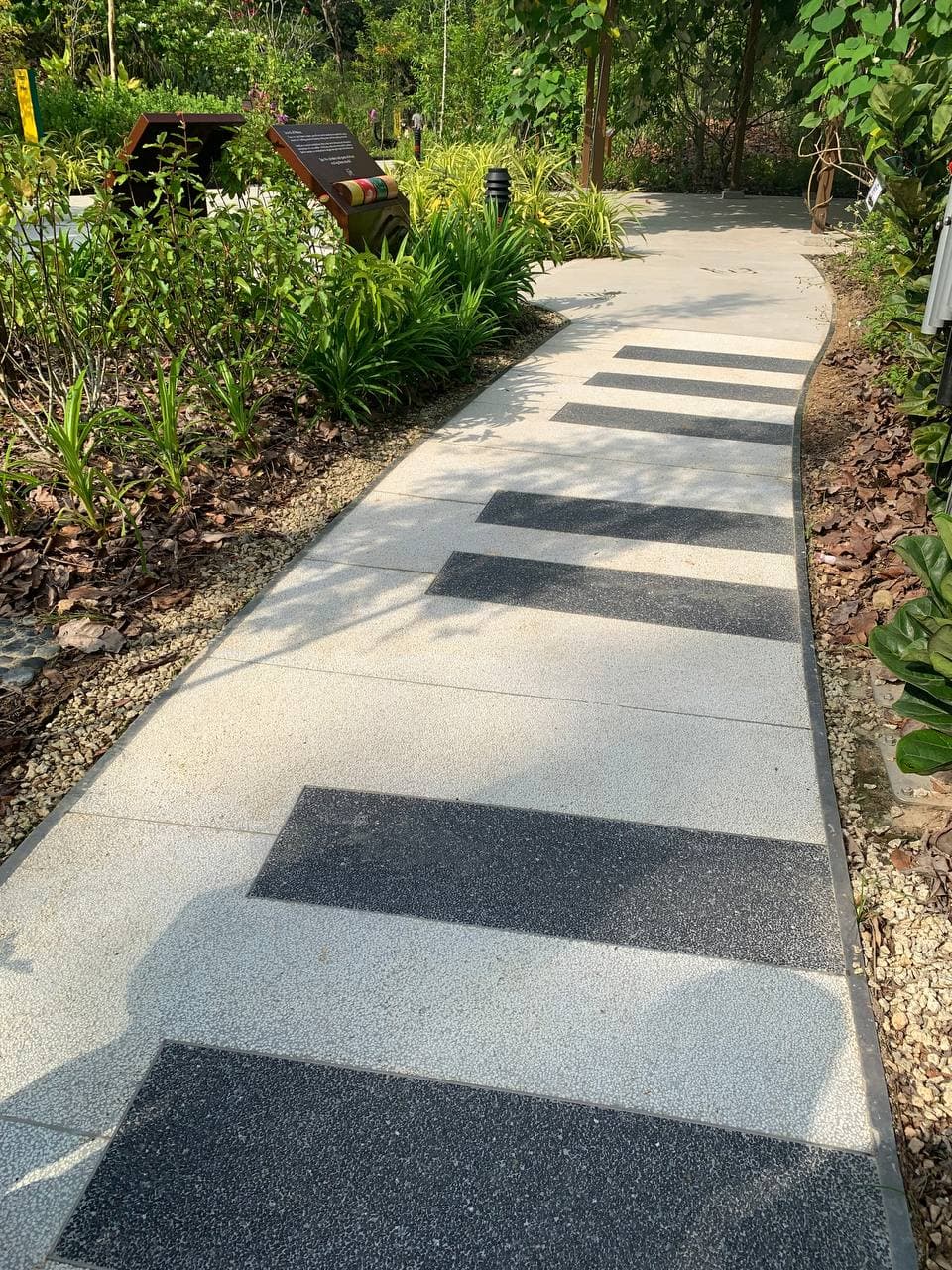 Photo by Lean Jinghui.
Photo by Lean Jinghui.
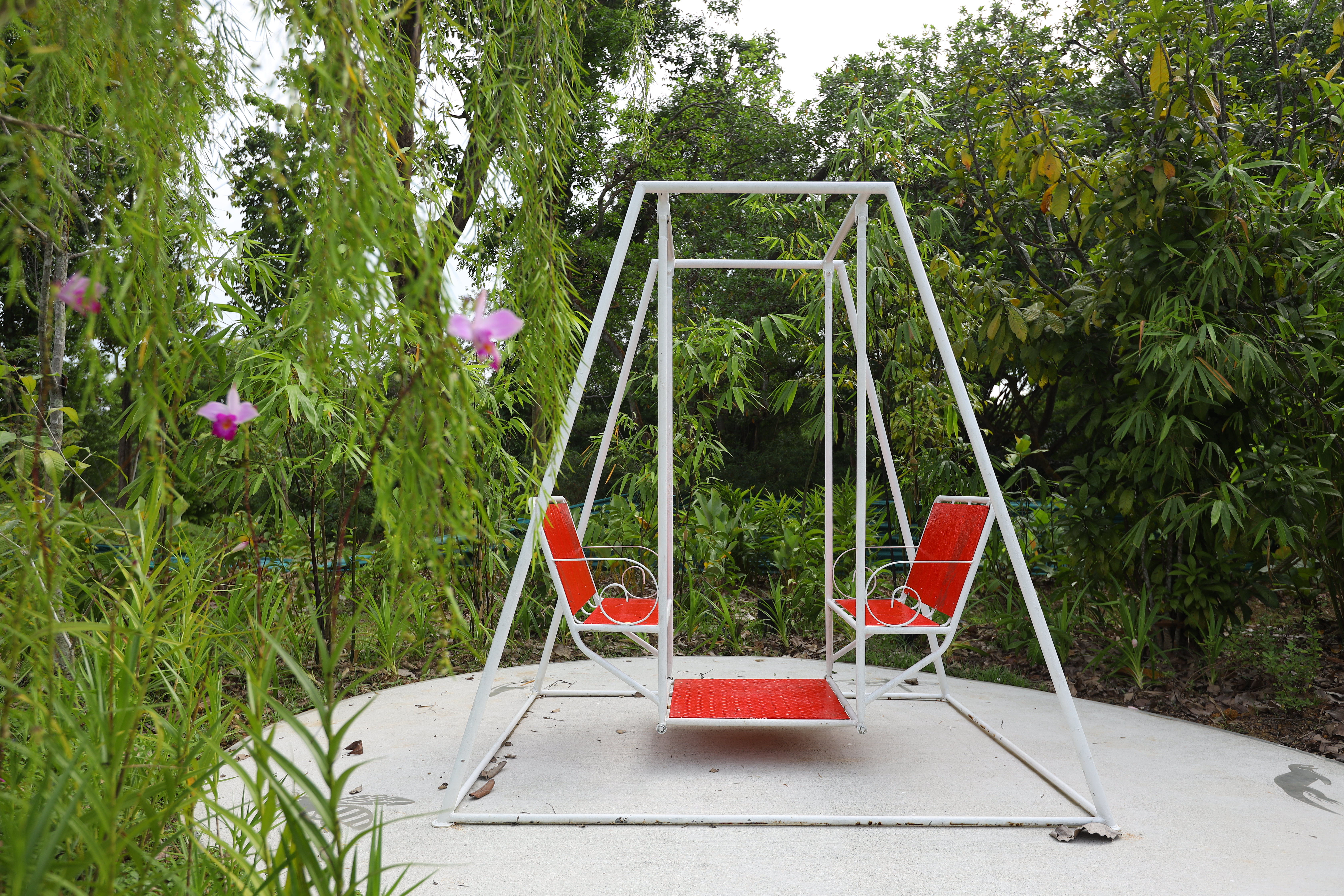 Photo courtesy of NParks.
Photo courtesy of NParks.
The children's section of the therapeutic garden also includes a wheelchair-friendly crawling trellis, as well as a labyrinth with pathways made of minerals that absorb ultra-violet light during the day, allowing them to softly glow in the dark at night.
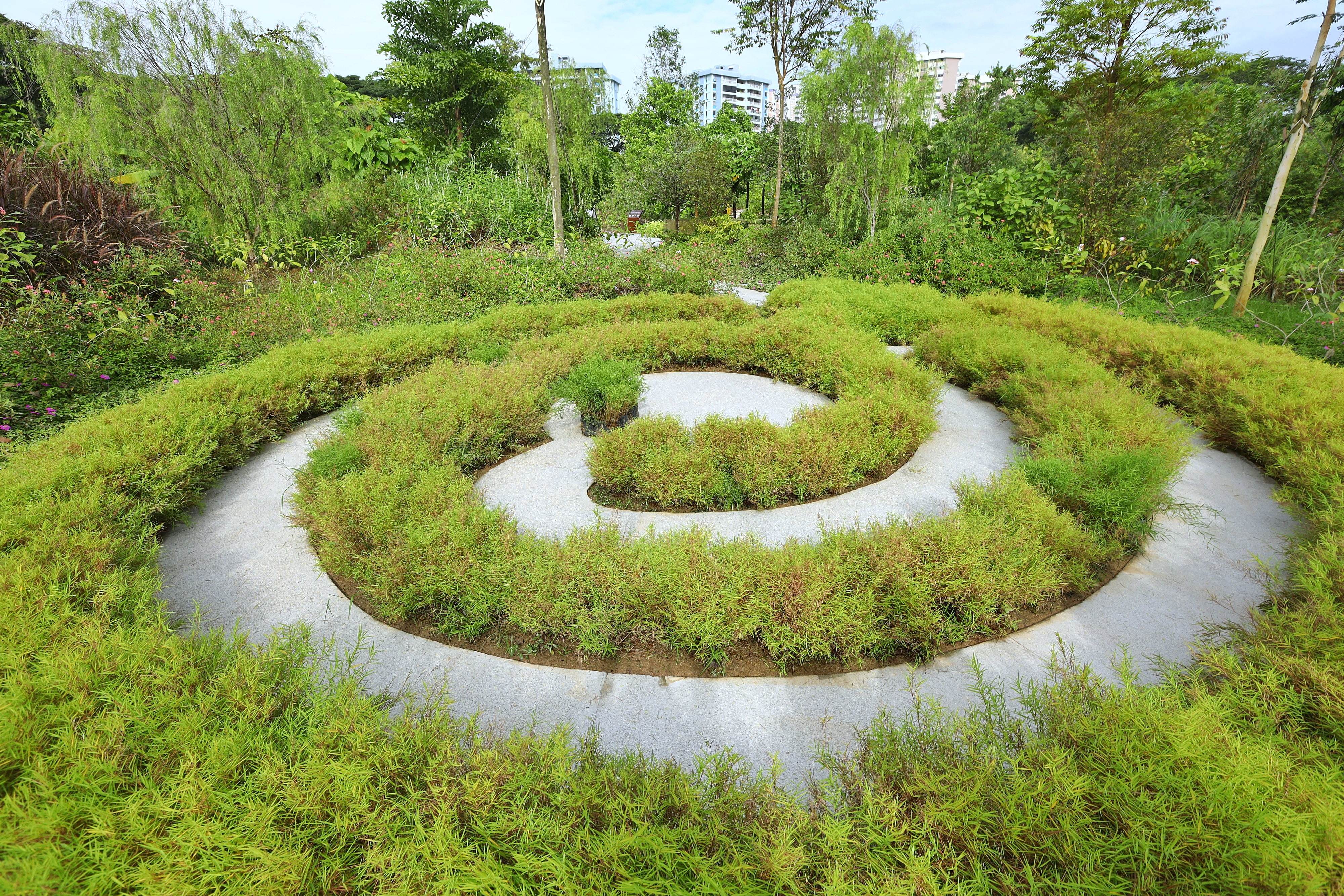 Photo courtesy of NParks.
Photo courtesy of NParks.
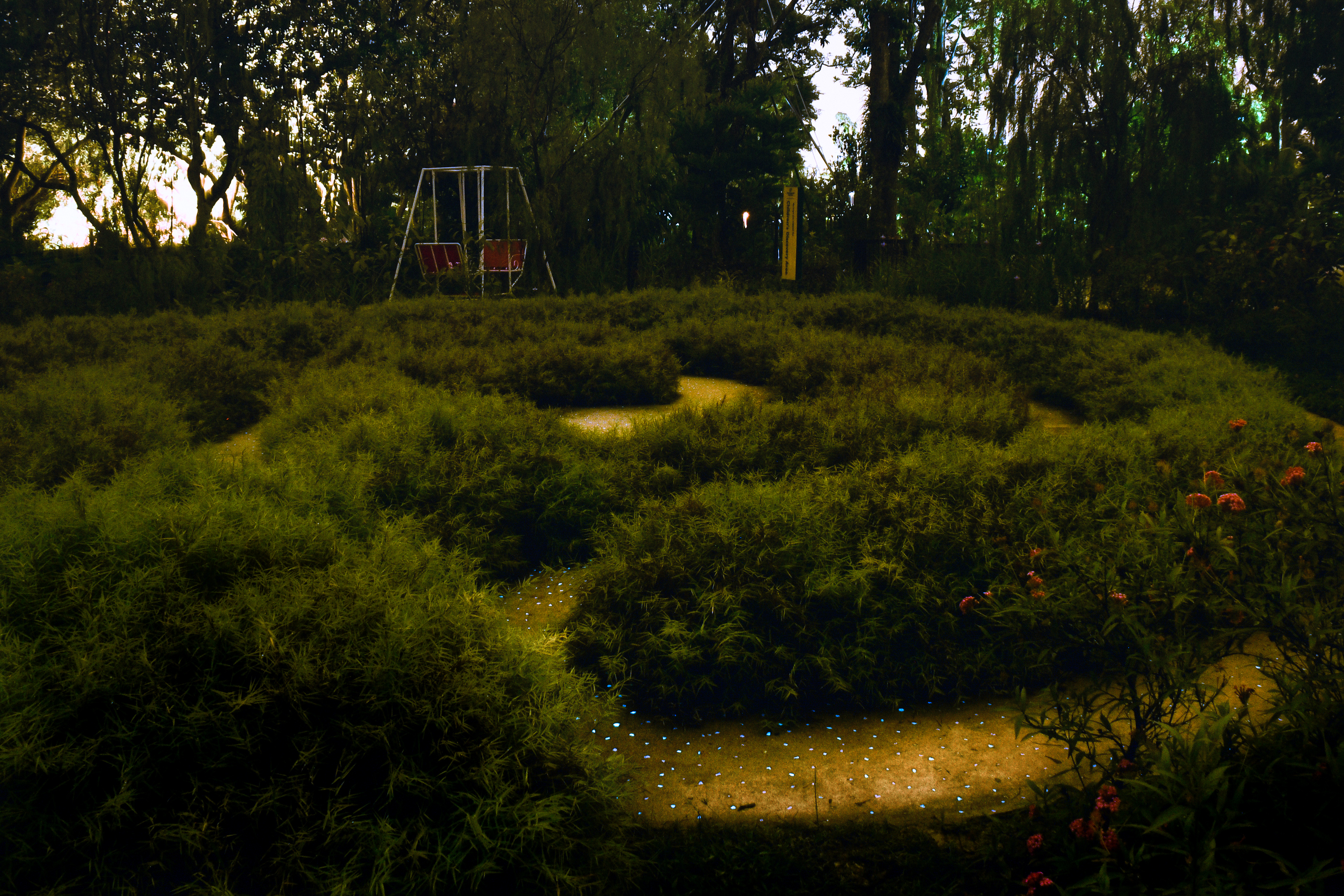 Photo courtesy of NParks.
Photo courtesy of NParks.
Raised planters are ergonomically designed to enhance accessibility for wheelchair users, and will be used to facilitate therapeutic horticulture programmes for children with special needs.
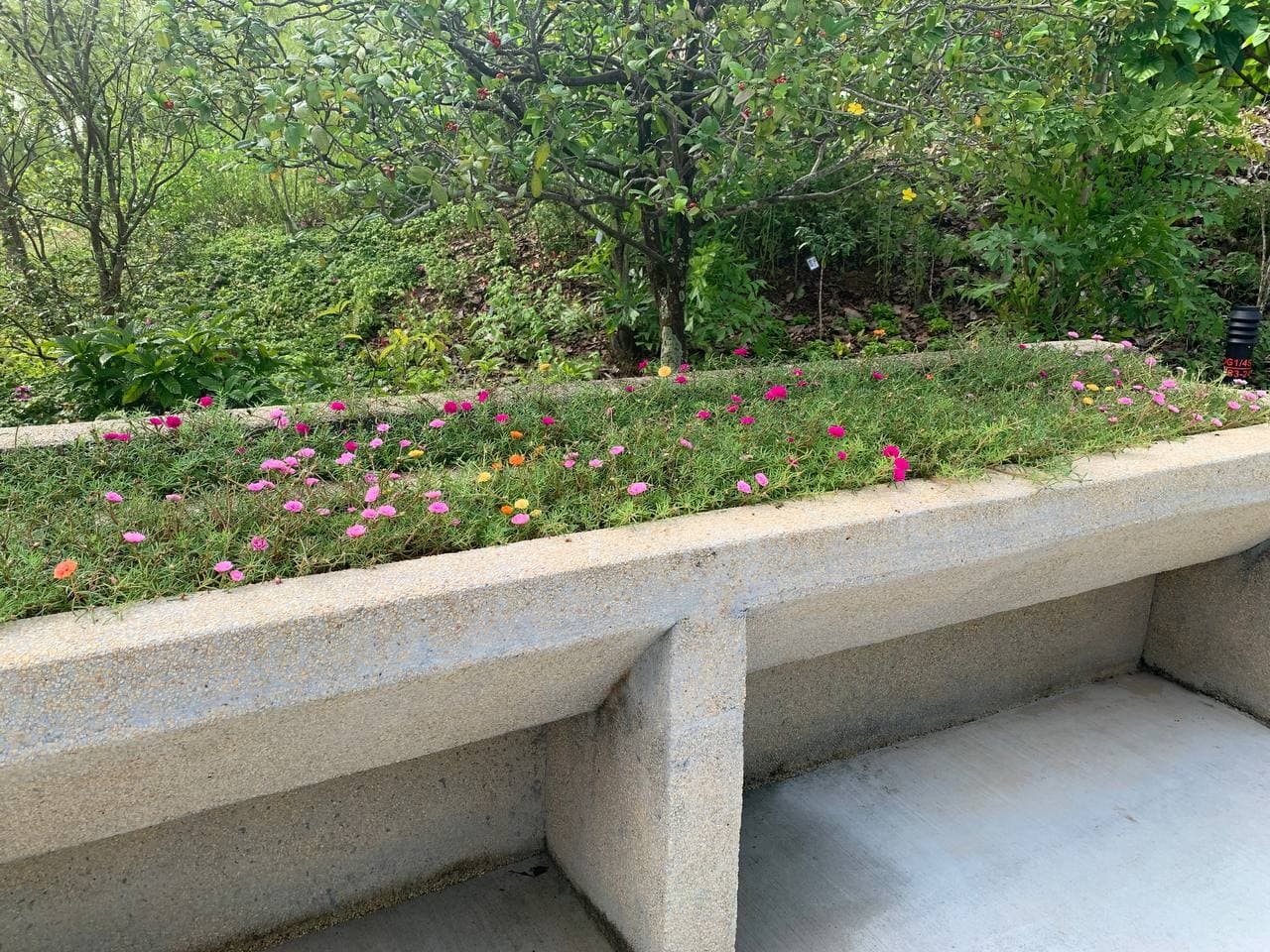 Photo by Lean Jinghui.
Photo by Lean Jinghui.
Butterfly maze
A butterfly maze that is adjoined to the children's section complements the therapeutic garden and provides additional opportunities for young visitors to experience the therapeutic effects of greenery.
It also allows children with special needs such as ADHD to simulate play experiences.
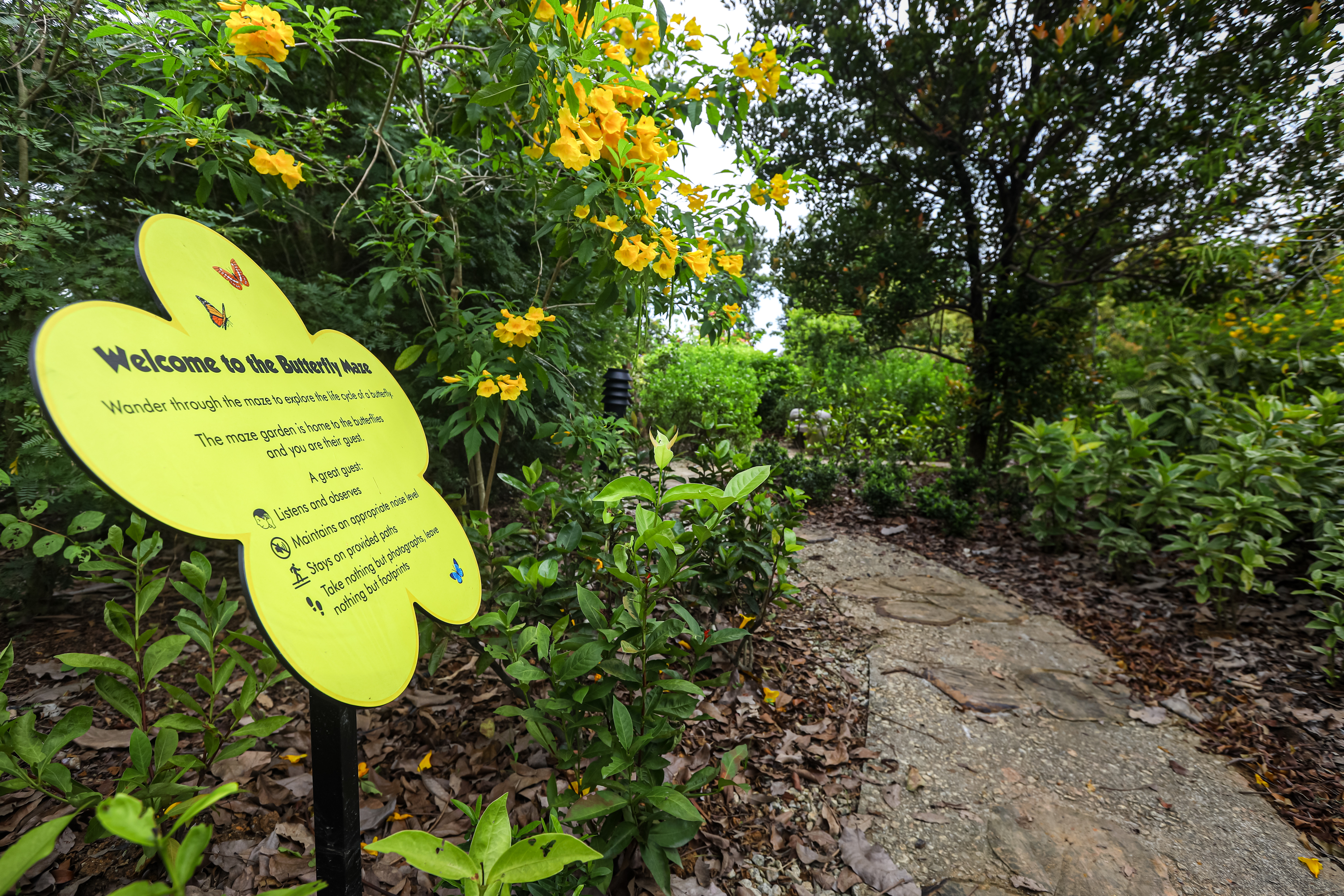 Photo courtesy of NParks.
Photo courtesy of NParks.
The maze includes a series of paths that weave between and over mounds, and children have the autonomy to explore and experience the maze.
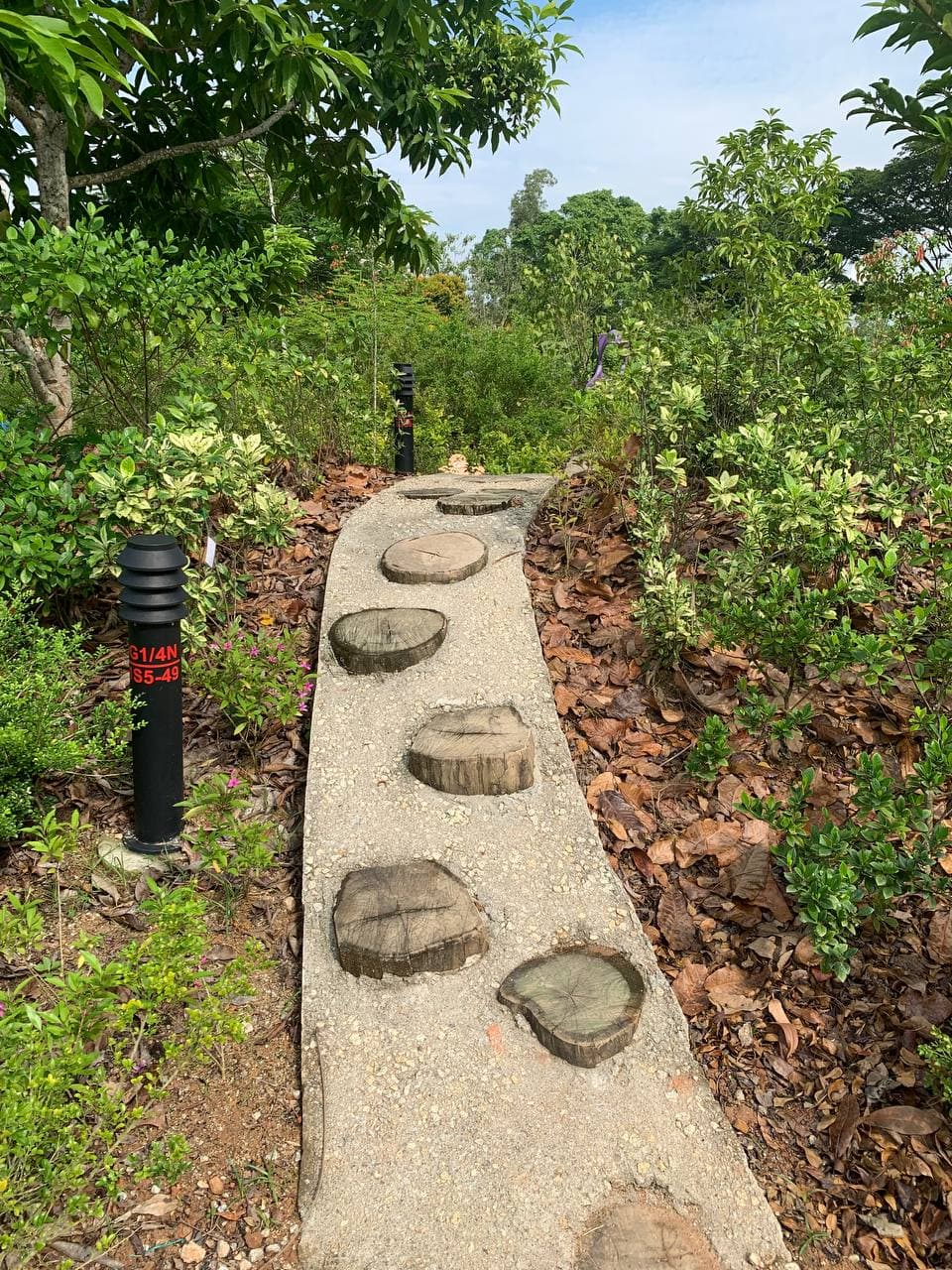 Photo by Lean Jinghui.
Photo by Lean Jinghui.
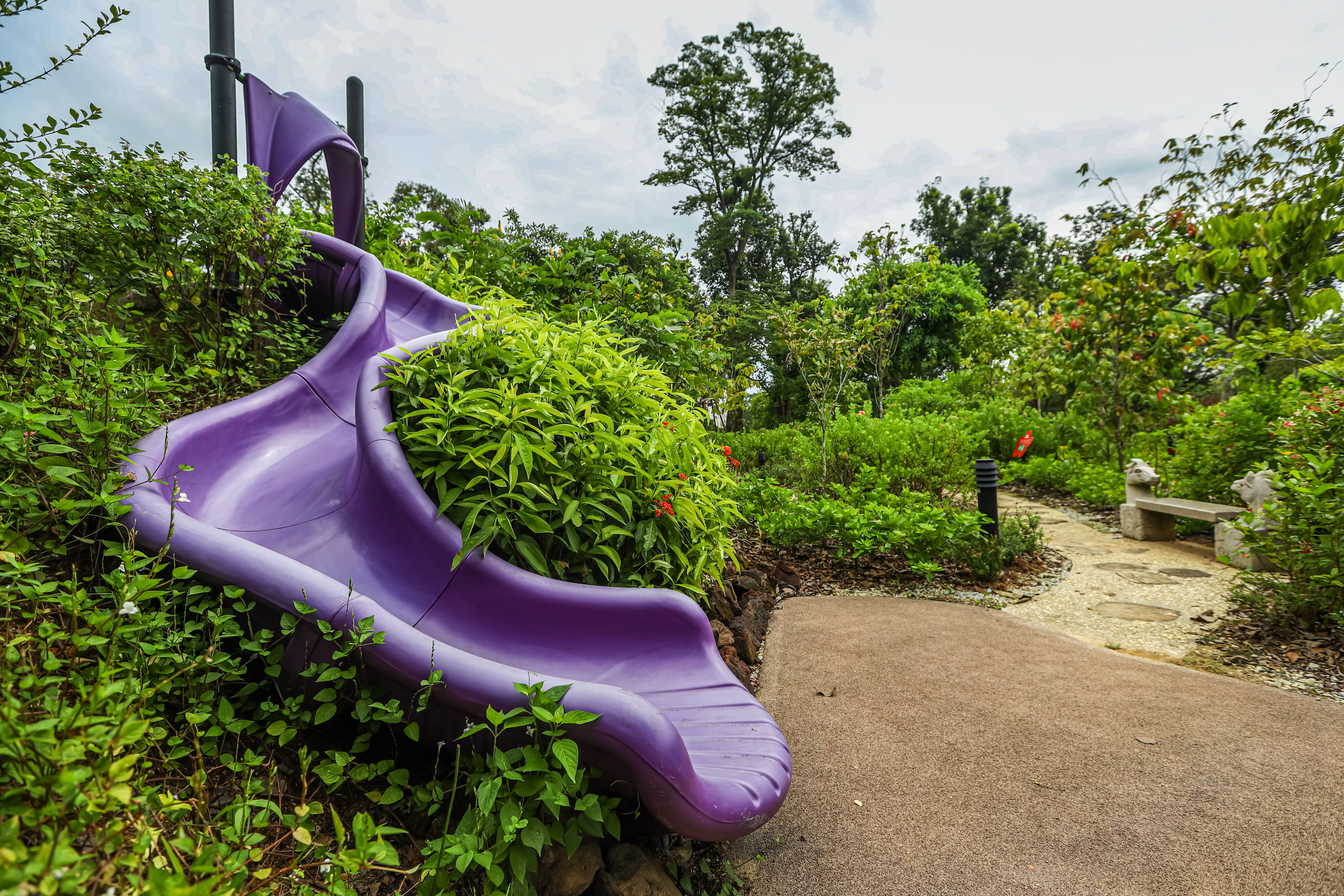 Photo courtesy of NParks.
Photo courtesy of NParks.
The maze also features butterfly-attracting plants, such as Giant Milkweed, Blood Flower, and Senna, so children can expect to see a range of vibrantly coloured butterflies.
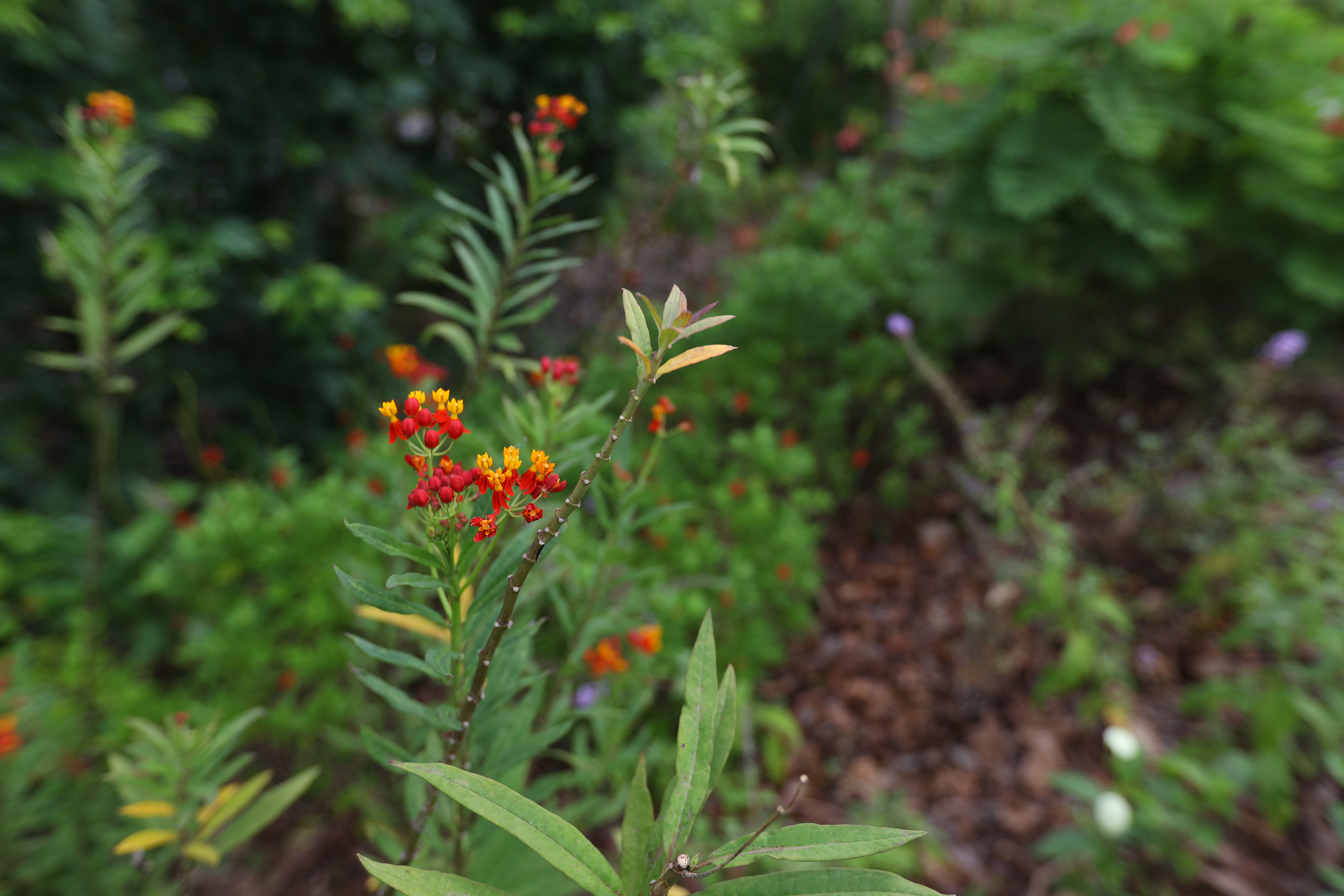 Photo courtesy of NParks.
Photo courtesy of NParks.
Adult section meant for reminiscing
The adult section of the therapeutic garden includes a sheltered gathering space with an extended trellis, to encourage social interaction surrounded by greenery.
It can also serve as an activity hub for organised therapeutic horticulture programmes.
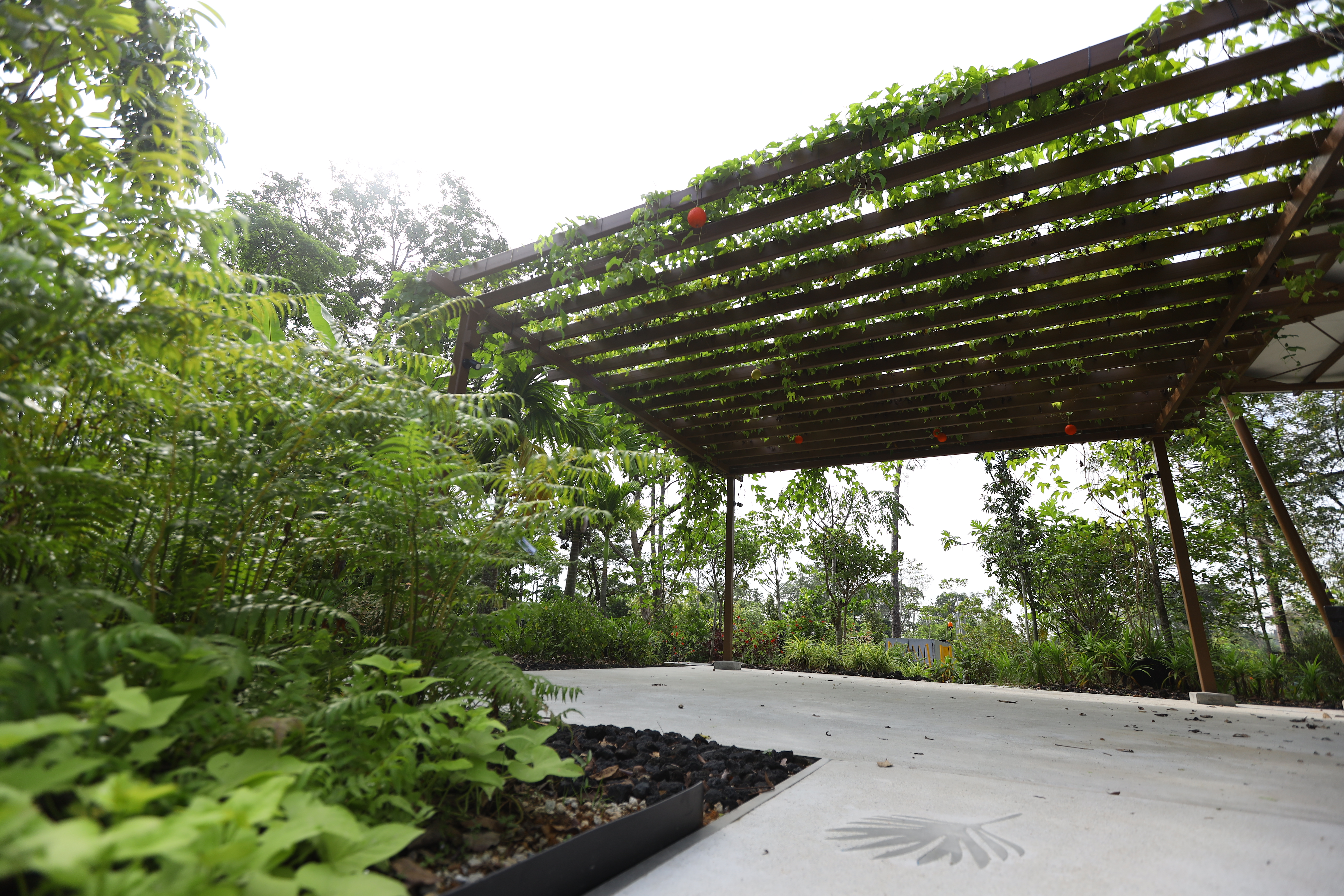 Photo courtesy of NParks.
Photo courtesy of NParks.
Moveable raised planters are meant to enhance accessibility for wheelchair users, and a range of traditional leafy vegetables will be planted in rotation in these planters.
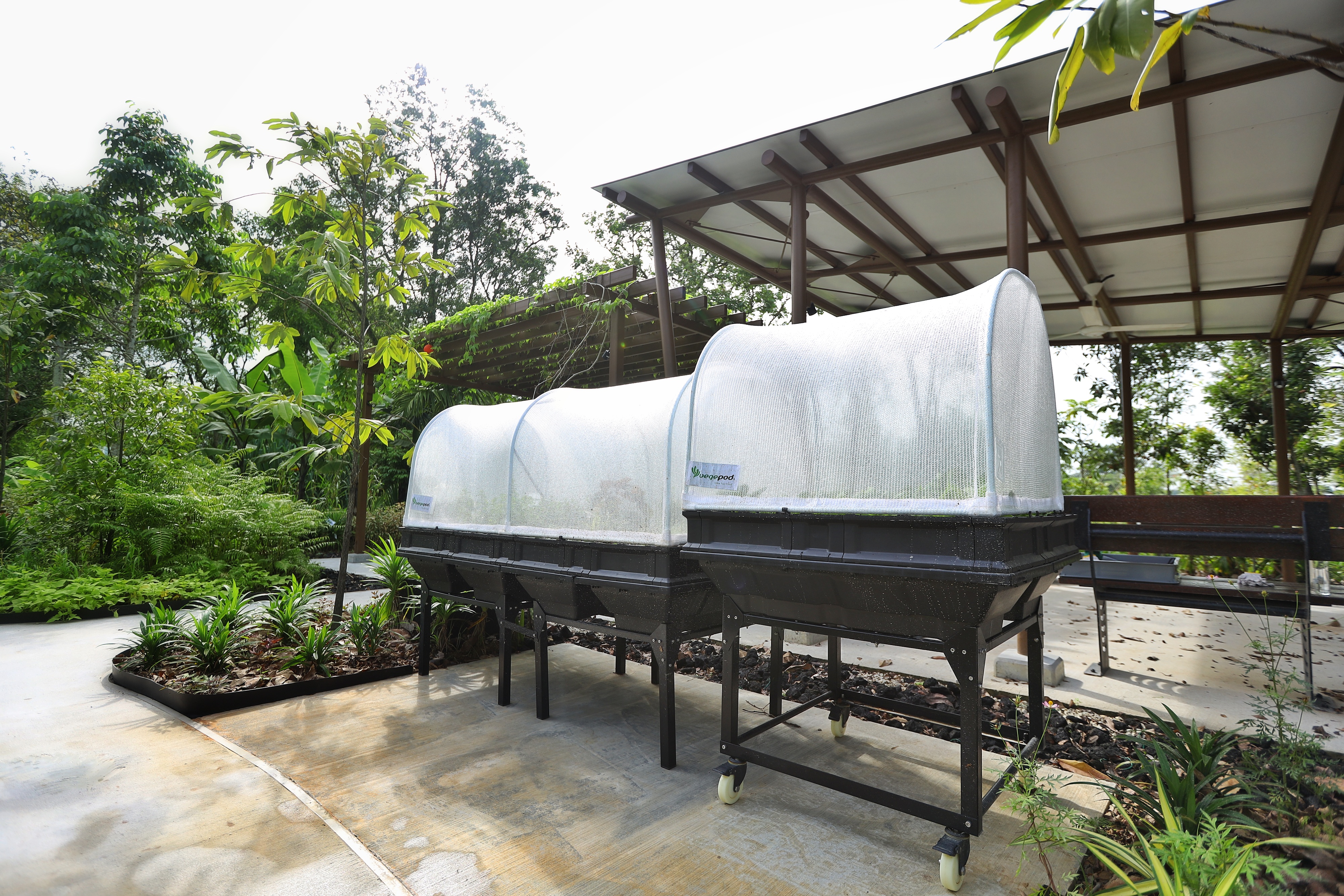 Photo courtesy of NParks.
Photo courtesy of NParks.
The garden also has a rich variety of plants which are arranged thematically, to evoke strong memories and engage the senses. These include the Fragrance Zone and the Edibles Zone.
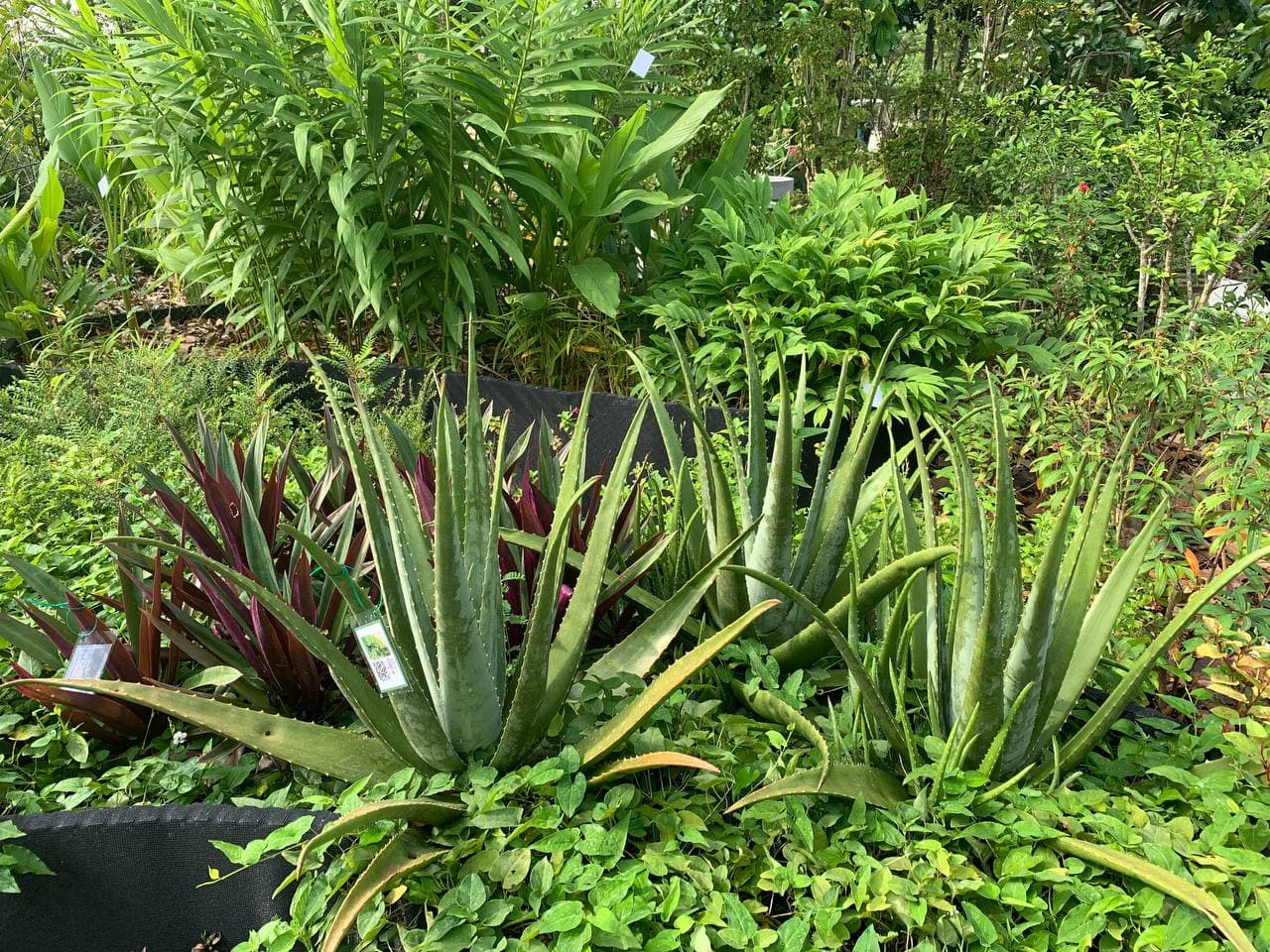 Photo by Lean Jinghui.
Photo by Lean Jinghui.
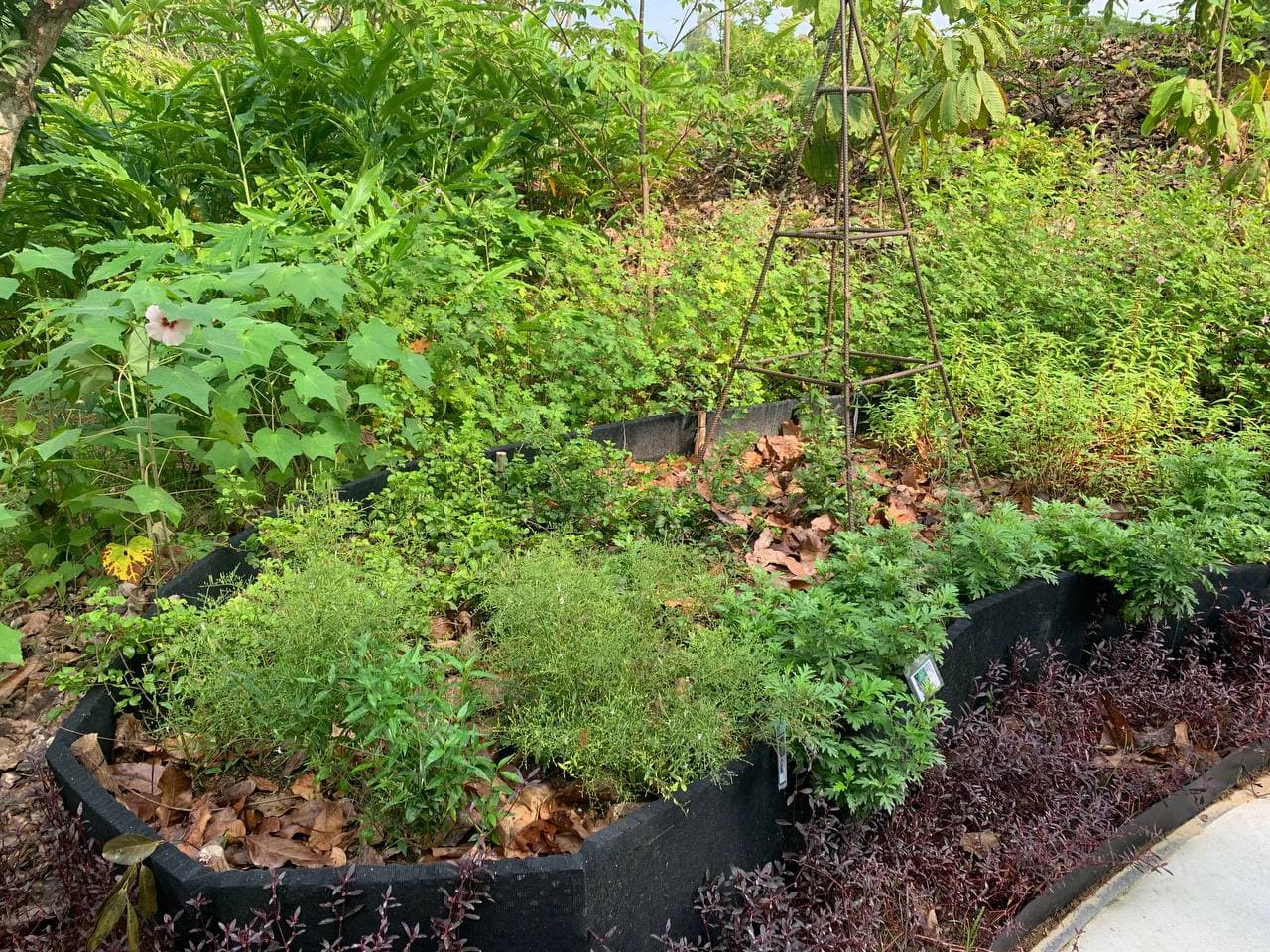 Photo by Lean Jinghui.
Photo by Lean Jinghui.
Nostalgic features in the garden include a stone chess table — reminiscent of those found at the void decks of older housing estates — as well as plants that were commonly planted in the past and signs with images and toys from the past. These are meant to evoke strong memories for seniors.
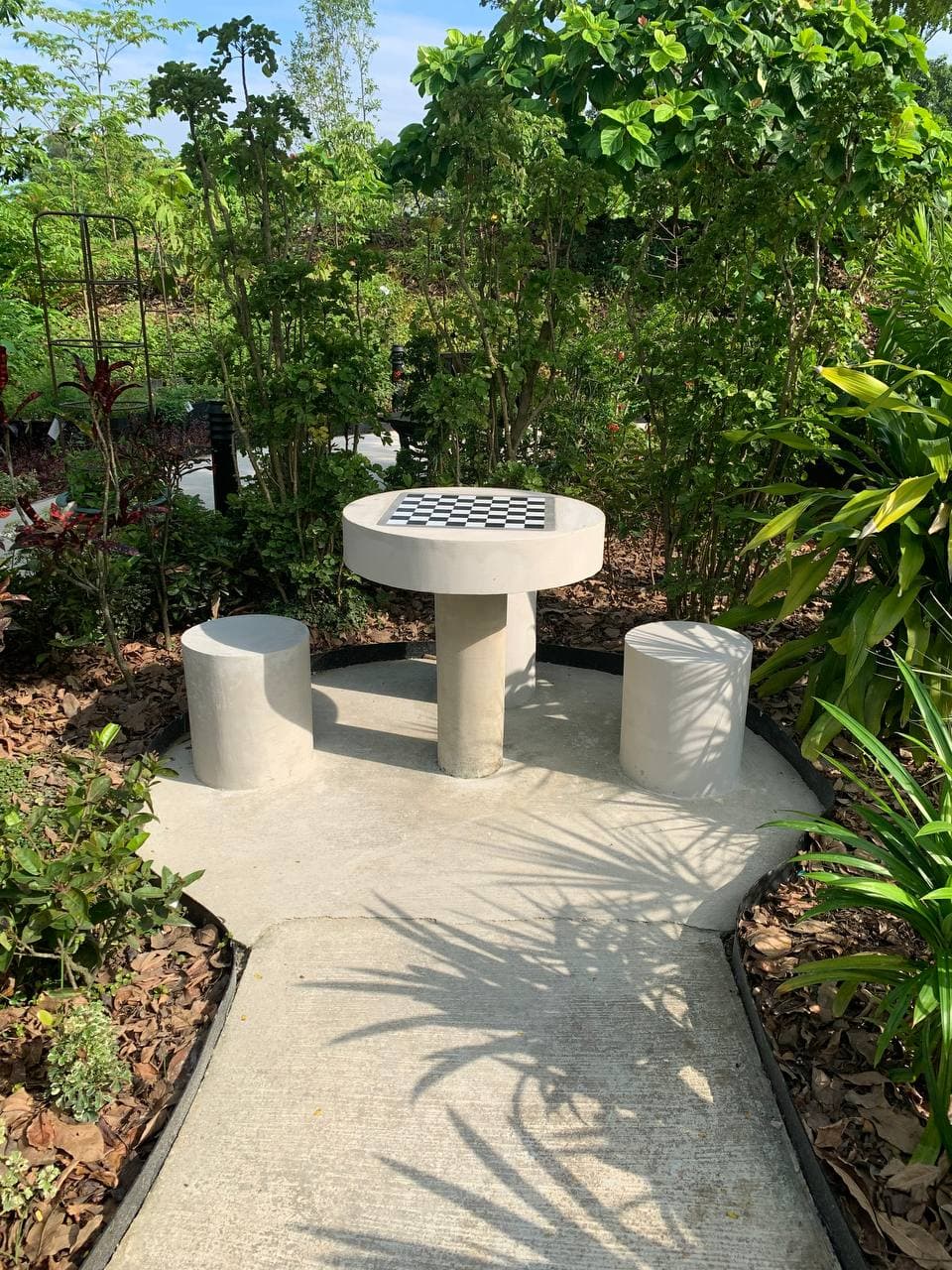 Photo by Lean Jinghui.
Photo by Lean Jinghui.
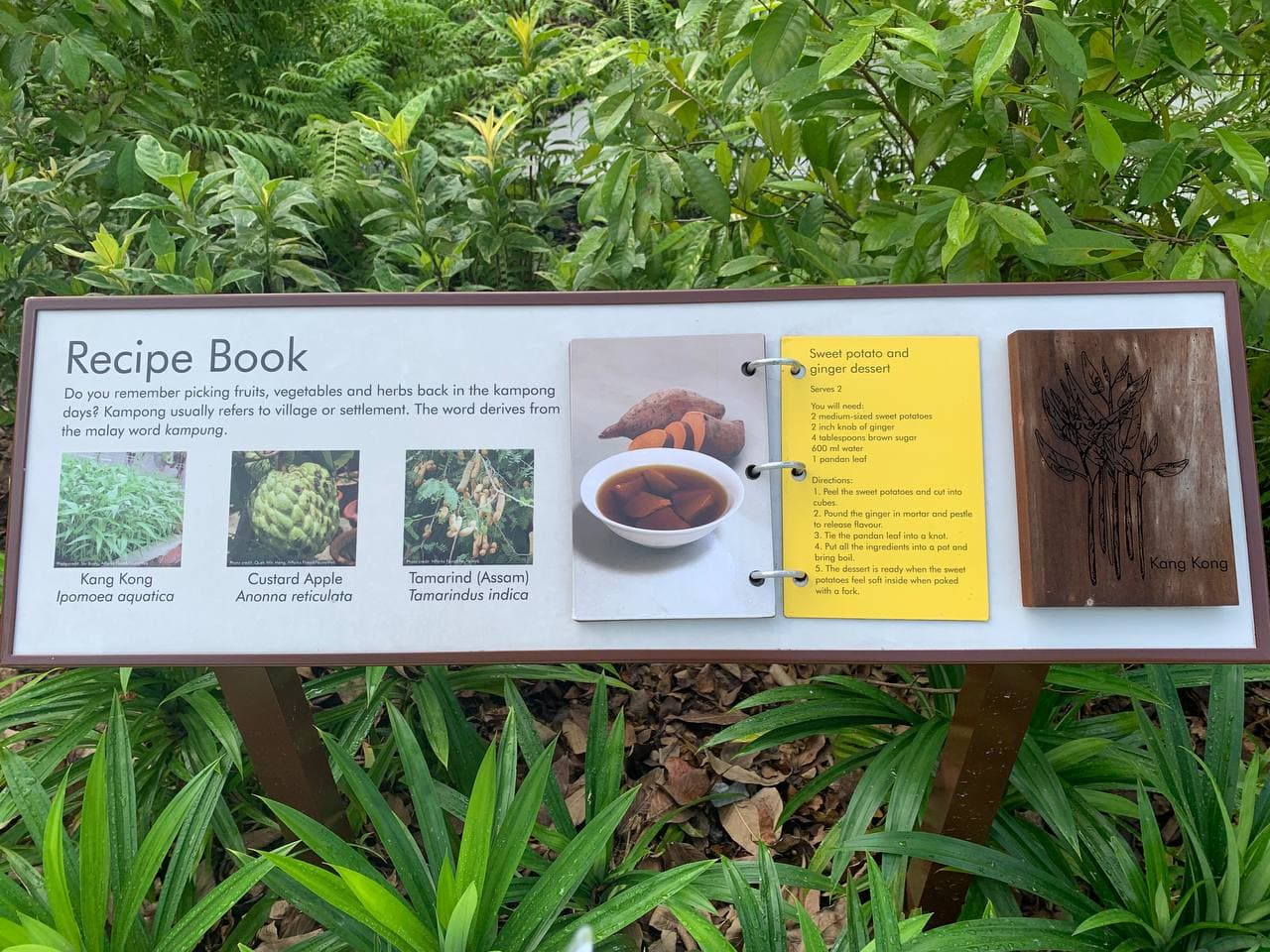 Photo by Lean Jinghui.
Photo by Lean Jinghui.
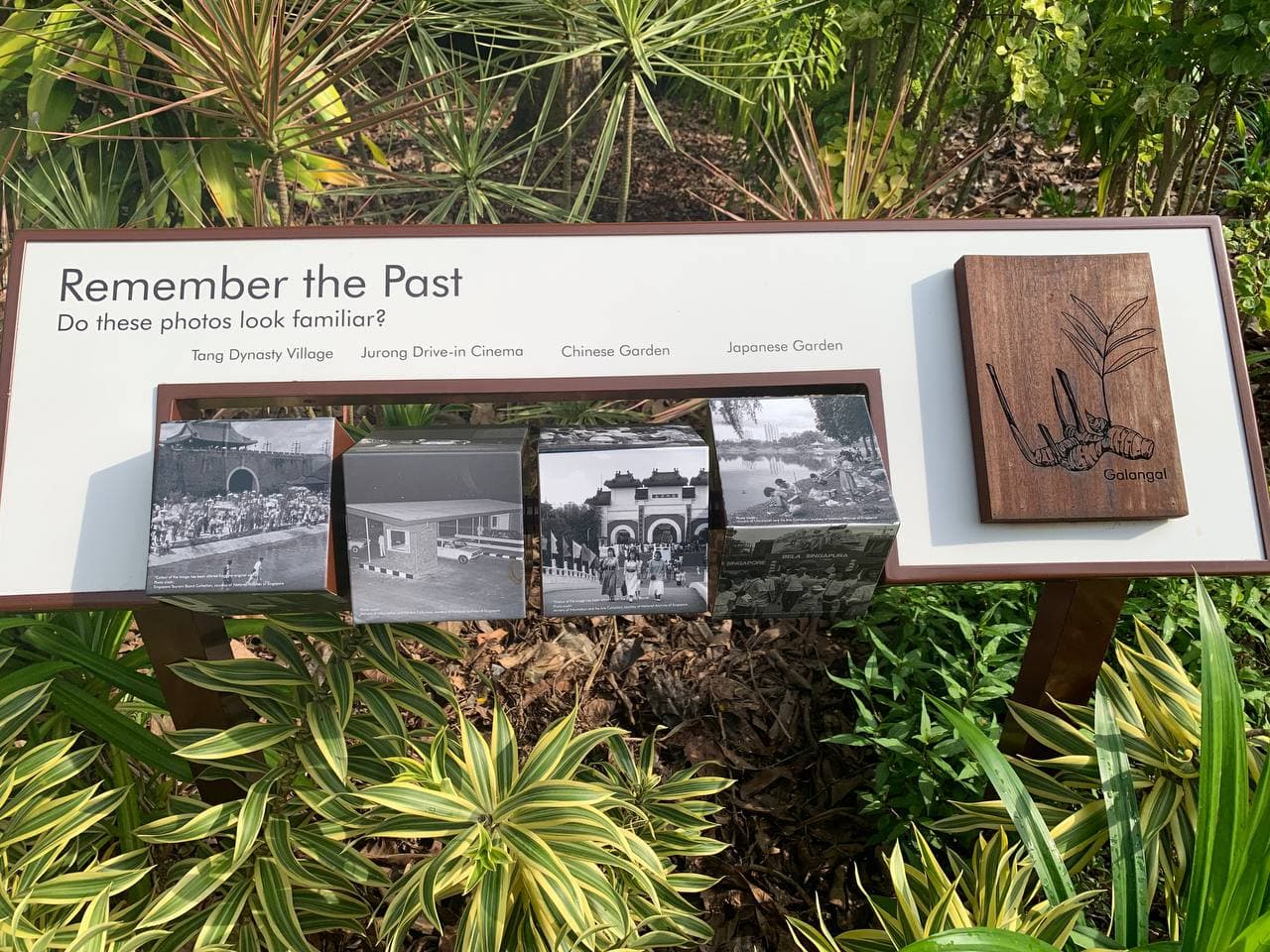 Photo by Lean Jinghui.
Photo by Lean Jinghui.
Therapeutic horticulture programmes will be carried out in the outdoor activity area.
Sessions will last an hour, and activities are designed to stimulate the participants' senses and memories through interaction with nature and encourage motor and hand-eye coordination.
Free entry
Here is a map of the entire Therapeutic Garden and Butterfly Maze.

They are located at Jurong Lake Gardens, near Chinese Garden Road.
Both the Therapeutic Garden and Butterfly Maze are open 24 hours a day, and entry is free and open to public.
Top photos via NParks.
Follow and listen to our podcast here
If you like what you read, follow us on Facebook, Instagram, Twitter and Telegram to get the latest updates.
